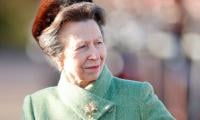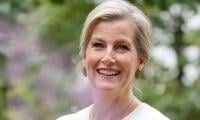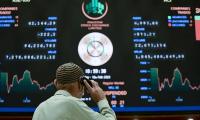Singapore: Singapore will start vaccinating schoolchildren against the coronavirus soon, the prime minister said on Monday, after officials warned that new strains were affecting youngsters more.
The city-state recently tightened curbs following a slight uptick in cases, after months of reporting barely any local transmissions. This included closing schools amid signs that new variants, such as the one first detected in India, were affecting children in greater numbers. In a televised speech, Prime Minister Lee Hsien Loong announced school students aged 12 and over will be the next group to be inoculated.
Health regulators approved the Pfizer/BioNTech vaccine for 12- to 15-year-olds this month. It was previously only allowed for those aged 16 and above. "In this latest outbreak, we have seen more cases of children getting infected, in schools and tuition centres," Lee said. "The children were not seriously ill, but parents are naturally worried. Therefore, we will take advantage of the June holidays to vaccinate students."
The city’s more than 400,000 students can start booking vaccinations from Tuesday, with the first slots available Thursday, officials said. After schoolchildren, officials will inoculate adults 39 years and younger -- the final group that needs to be vaccinated in the prosperous city-state of 5.7 million.
Lee also said Singapore looked on track to be able to ease its latest restrictions after June 13, as planned, as local transmissions steadily fall. The curbs include a two-person limit on gatherings and ban on dine-ins.
By global standards, Singapore’s overall outbreak has been mild -- officials have reported just over 62,000 cases so far and 33 deaths since the start of the pandemic.Meanwhile, France on Monday opened up Covid-19 vaccines to all adults, a week before Germany, as Europe races to avoid another wave of infections caused by new virus variants.
So far, 25.4 million people have received a first shot of a vaccine, representing about 38 percent of the population and nearly one in two adults. Until now, people over 50, workers in professions particularly exposed to the virus and younger adults with underlying health problems were given priority.
With the country just beginning to bounce back from a severe third wave of infections, President Emmanuel Macron’s government is keen to quickly expand the vaccine coverage to slow the spread of variants that could spell fresh disaster.
Both France and Germany have over the past week imposed new restrictions on travel from the UK, to curb the spread of the Indian variant blamed for a surge of cases in parts of Britain. In a severe blow to the French tourism sector, British and other non-EU nationals travelling from the UK to France starting Monday have to provide a "compelling" reason to enter the country. Germany meanwhile has imposed a two-week quarantine for travellers arriving from the UK.
As the French savour a degree of freedom following the reopening of cafes, restaurants and museums two weeks ago, initially high levels of vaccine hesitancy have begun to subside.
The Federal Bureau of Investigation seal is seen at FBI headquarters in Washington, US June 14, 2018. — ReutersNEW...
Astronaut Wang Haoze will become the third Chinese woman to take part in a crewed mission when the Shenzhou-19 team...
United Nations Secretary-General Antonio Guterres gestures as he attends a news conference in Beirut, Lebanon,...
A Yars intercontinental ballistic missile is launched during Russian military drills on October 29, 2024. — Russian...
The spot where an explosion occurred in a firework storage facility near Hindu temple at Nileshwaram, in the sourthern...
United Nations High Commissioner for Human Rights Volker Turk, right, looks at graffiti on the walls of Dhaka...







